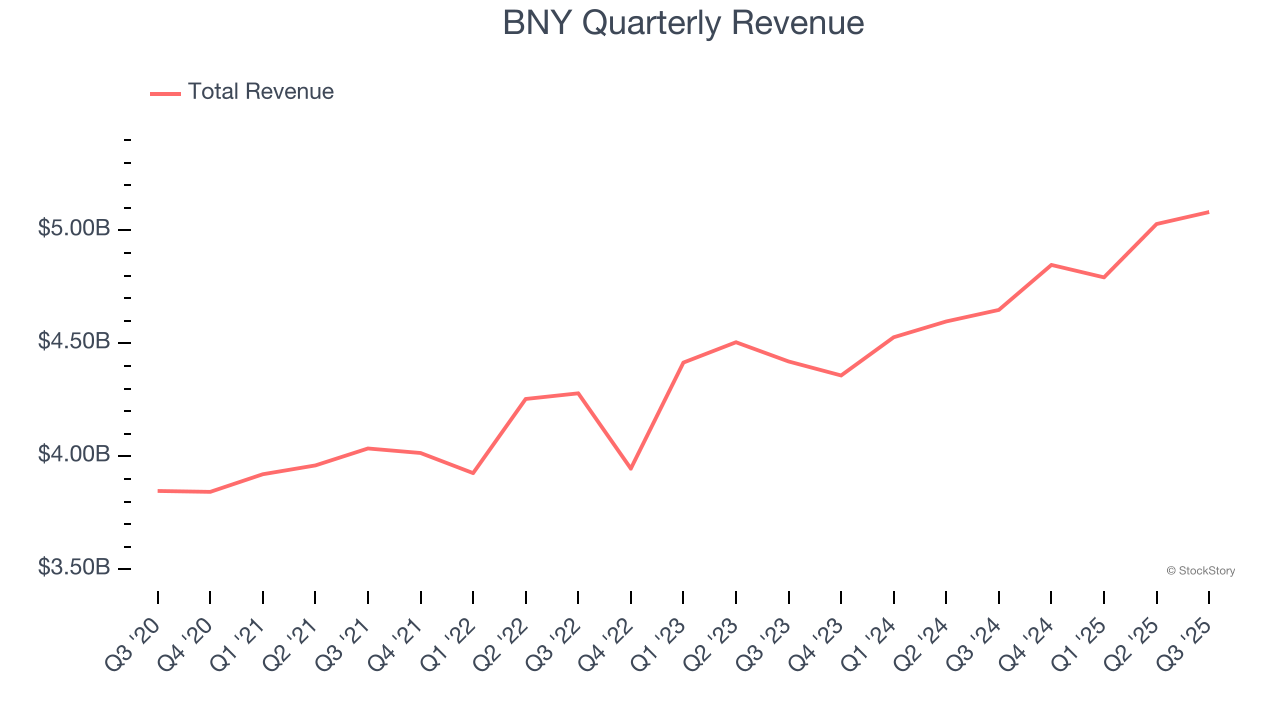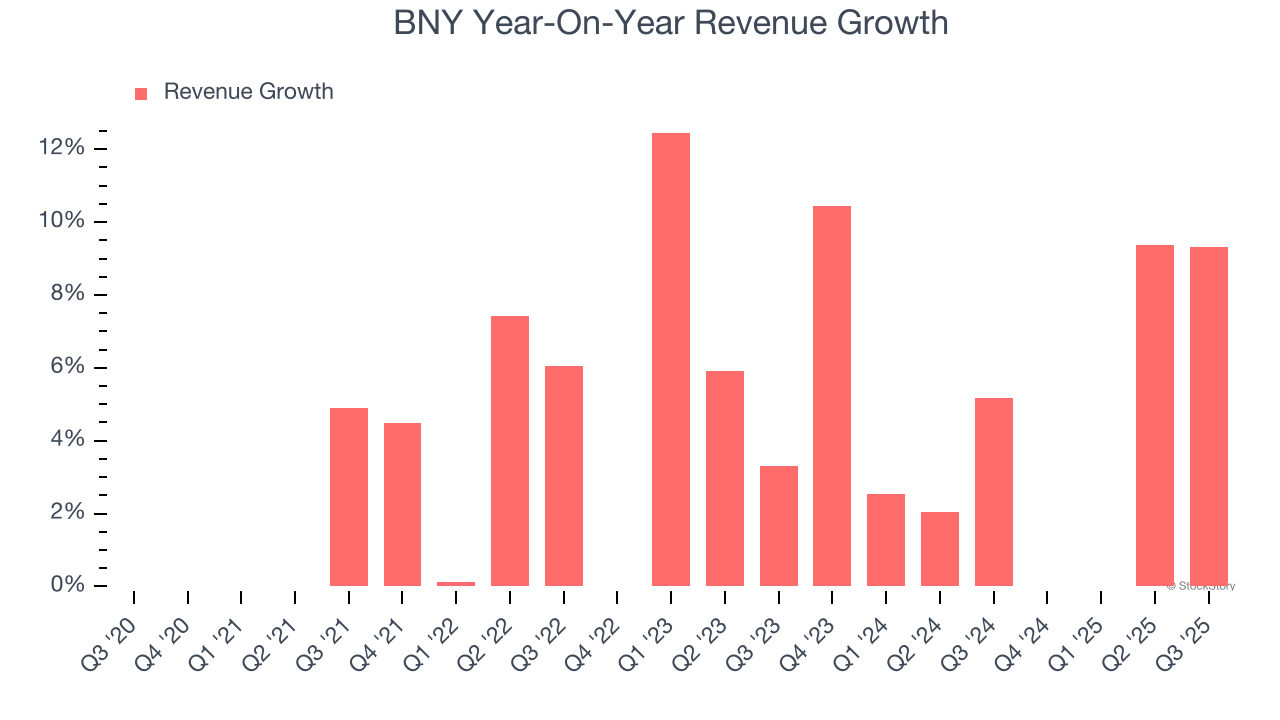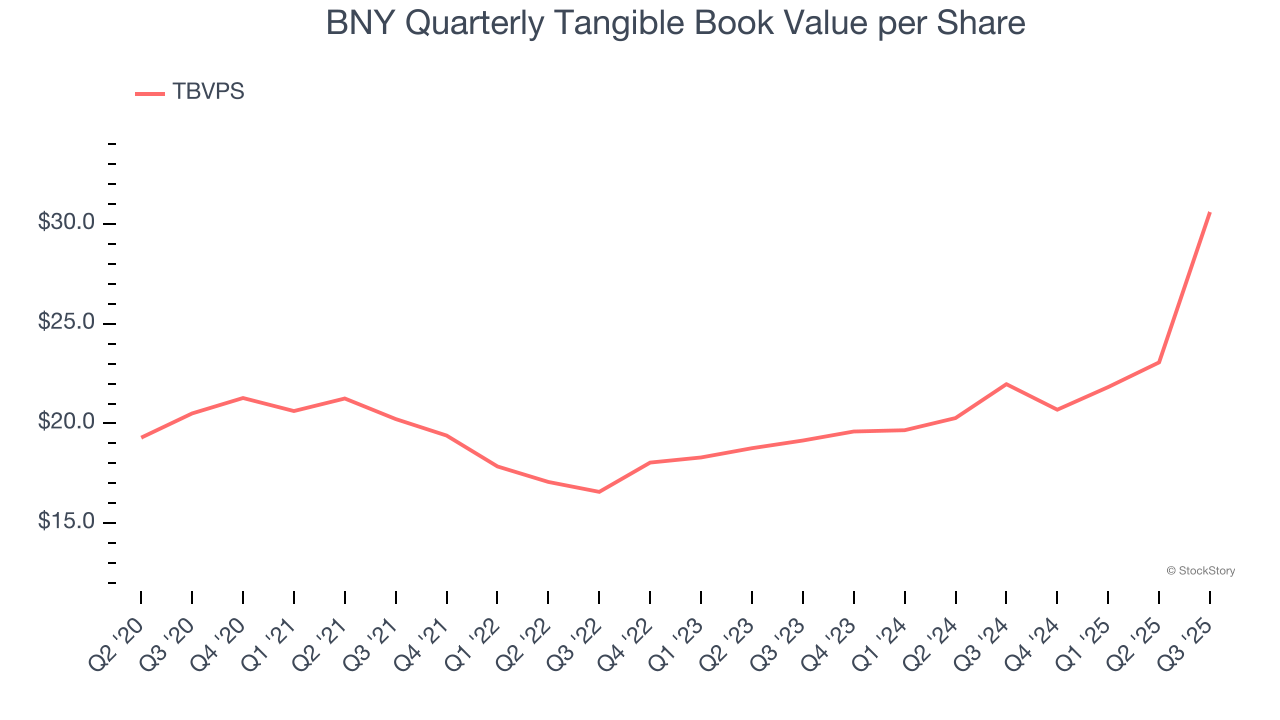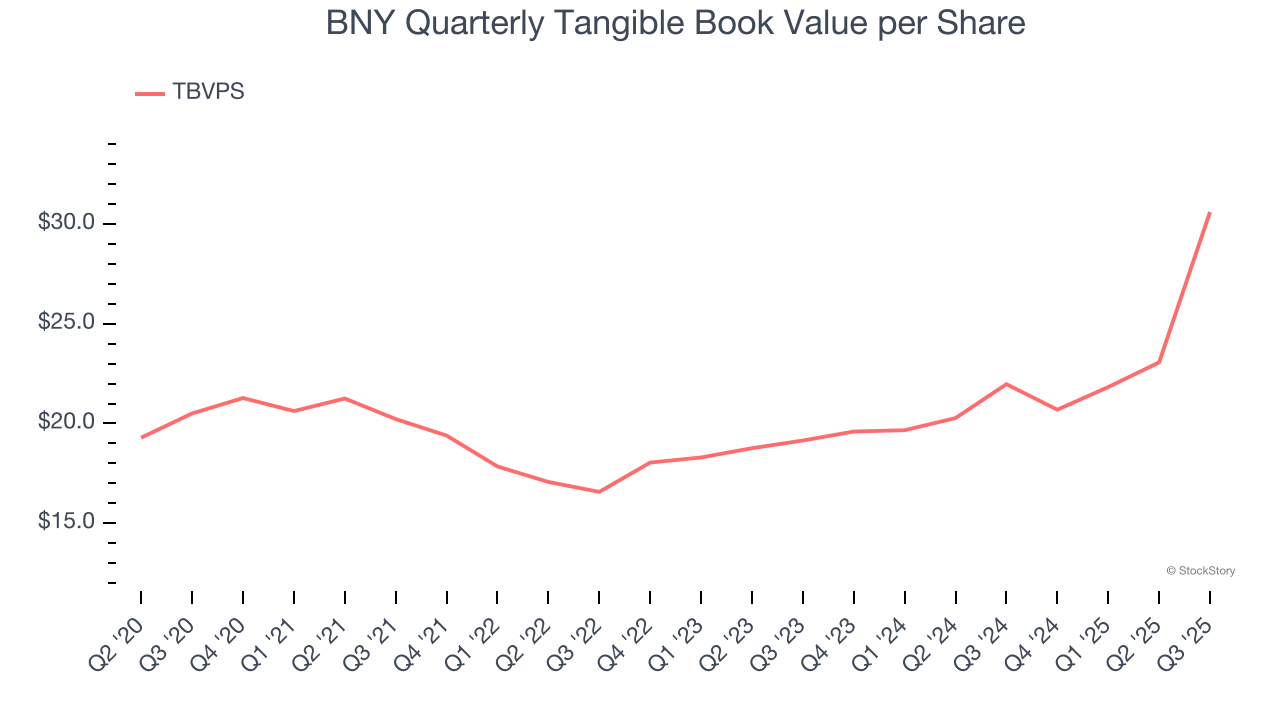
Global financial services company BNY NYSE:BK) reported Q3 CY2025 results topping the market’s revenue expectations, with sales up 9.3% year on year to $5.08 billion. Its GAAP profit of $1.88 per share was 6.7% above analysts’ consensus estimates.
Is now the time to buy BNY? Find out by accessing our full research report, it’s free for active Edge members.
BNY (BK) Q3 CY2025 Highlights:
- Advisory and Services Fees: $2.55 billion (8.4% year-on-year growth)
- Revenue: $5.08 billion vs analyst estimates of $4.96 billion (9.3% year-on-year growth, 2.4% beat)
- Pre-tax Profit: $1.85 billion (36.4% margin, 21.4% year-on-year growth)
- EPS (GAAP): $1.88 vs analyst estimates of $1.76 (6.7% beat)
- Tangible Book Value per Share: $30.60 vs analyst estimates of $29.75 (39.3% year-on-year growth, 2.9% beat)
- Market Capitalization: $76.82 billion
Company Overview
Tracing its roots back to 1784 when it was founded by Alexander Hamilton, BNY (NYSE:BK) is a global financial institution that provides asset servicing, wealth management, and investment services to institutions, corporations, and high-net-worth individuals.
Revenue Growth
A company’s long-term sales performance can indicate its overall quality. Even a bad business can shine for one or two quarters, but a top-tier one grows for years. Over the last five years, BNY grew its revenue at a sluggish 3.4% compounded annual growth rate. This was below our standard for the financials sector and is a poor baseline for our analysis.

We at StockStory place the most emphasis on long-term growth, but within financials, a half-decade historical view may miss recent interest rate changes, market returns, and industry trends. BNY’s annualized revenue growth of 6.9% over the last two years is above its five-year trend, but we were still disappointed by the results.  Note: Quarters not shown were determined to be outliers, impacted by outsized investment gains/losses that are not indicative of the recurring fundamentals of the business.
Note: Quarters not shown were determined to be outliers, impacted by outsized investment gains/losses that are not indicative of the recurring fundamentals of the business.
This quarter, BNY reported year-on-year revenue growth of 9.3%, and its $5.08 billion of revenue exceeded Wall Street’s estimates by 2.4%.
Today’s young investors won’t have read the timeless lessons in Gorilla Game: Picking Winners In High Technology because it was written more than 20 years ago when Microsoft and Apple were first establishing their supremacy. But if we apply the same principles, then enterprise software stocks leveraging their own generative AI capabilities may well be the Gorillas of the future. So, in that spirit, we are excited to present our Special Free Report on a profitable, fast-growing enterprise software stock that is already riding the automation wave and looking to catch the generative AI next.
Tangible Book Value Per Share (TBVPS)
The balance sheet drives profitability for financial firms since earnings flow from managing diverse assets and liabilities across multiple business lines. As such, valuations for these companies concentrate on capital strength and sustainable equity accumulation potential across their varied operations.
When analyzing this sector, tangible book value per share (TBVPS) takes precedence over many other metrics. This measure isolates genuine per-share value and provides insight into the institution’s capital position across diverse operations. EPS can become murky due to the complexity of multiple revenue streams, acquisition impacts, or accounting flexibility across different financial services, and book value resists financial engineering manipulation.
BNY’s TBVPS grew at a decent 8.3% annual clip over the last five years. TBVPS growth has accelerated recently, growing by 26.4% annually over the last two years from $19.15 to $30.60 per share.

Tangible Book Value Per Share (TBVPS)
Diversified financial companies operate across multiple business segments, from investment banking and trading to wealth management and specialized lending. Their valuations hinge on balance sheet quality and the ability to compound shareholder equity across these diverse operations.
This is why we consider tangible book value per share (TBVPS) an important metric for the sector. TBVPS represents the real net worth per share across all business segments, providing a clear measure of shareholder equity regardless of the complexity of operations. On the other hand, EPS is often distorted by the diverse nature of operations, mergers, and various accounting treatments across different business units. Book value provides clearer performance insights.
BNY’s TBVPS grew at a decent 8.3% annual clip over the last five years. TBVPS growth has accelerated recently, growing by 26.4% annually over the last two years from $19.15 to $30.60 per share.

Key Takeaways from BNY’s Q3 Results
It was good to see BNY beat analysts’ EPS and tangible book value per share expectations this quarter. We were also happy its revenue outperformed Wall Street’s estimates. Overall, we think this was a decent quarter with some key metrics above expectations. The stock remained flat at $110 immediately after reporting.
BNY had an encouraging quarter, but one earnings result doesn’t necessarily make the stock a buy. Let’s see if this is a good investment. If you’re making that decision, you should consider the bigger picture of valuation, business qualities, as well as the latest earnings. We cover that in our actionable full research report which you can read here, it’s free for active Edge members.
